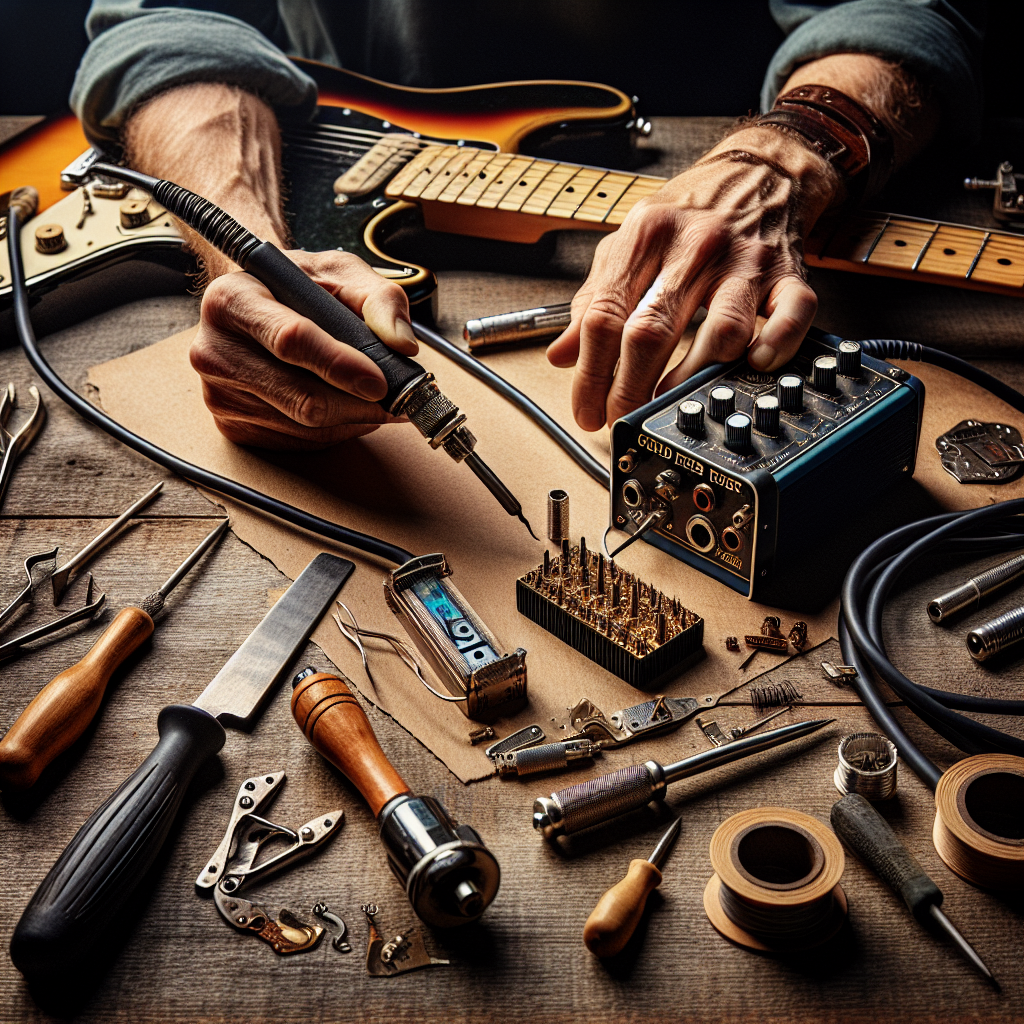
Top 5 Best Soldering Irons for Guitar Work: A Complete Guide
When it comes to maintaining or modifying your beloved guitar, having the right tools can make all the difference. One essential tool for any guitarist looking to make electronic modifications is a soldering iron. Whether you’re looking to replace pickups, repair wiring, or customize your instrument, choosing the best soldering iron for guitar work is crucial. In this guide, we’ll explore the top soldering tools and what makes them ideal for guitar enthusiasts.
1. Why a Quality Soldering Iron Matters
Using a quality soldering iron ensures precise, clean soldering connections, reducing the risk of damage to your guitar’s electronics. A good soldering iron provides consistent heat, which is essential for melting solder and creating reliable connections without overheating components. Furthermore, a quality tool can make your soldering tasks quicker and less frustrating, especially for beginners.
Investing in the right soldering iron not only helps preserve your guitar’s tone and functionality but also contributes to a more satisfying user experience. With the right choice, you can easily modify your guitar and explore new sounds without the hassle of faulty wiring or subpar modifications.
2. Types of Soldering Irons
- Standalone Soldering Irons: These are basic models ideal for small projects. They’re typically inexpensive and easy to use, but they lack temperature regulation.
- Soldering Stations: These offer more features, including temperature control, which is extremely helpful for precise work such as guitar modifications. They are suited for both beginners and seasoned tech enthusiasts.
- Portable Soldering Irons: Battery-operated and compact, these are perfect for on-the-go repairs but may not offer consistent heat or control.
Understanding these types will help you make an informed decision based on your specific needs and working environment.
3. Key Features to Consider
When selecting a soldering iron for guitar work, consider the following features:
- Temperature Control: This allows you to adjust the heat output for different tasks, ensuring precision and protecting sensitive components.
- Power Rating: For guitar work, a power rating between 40W to 60W is usually sufficient, providing enough heat for most jobs.
- Tip Selection: Having interchangeable tips of varying sizes and shapes can be crucial for navigating the tight spaces inside a guitar’s electronics cavity.
- Ergonomics: A comfortable, lightweight handle reduces fatigue and improves accuracy during extended use.
Choosing a soldering iron with these features will help ensure successful and stress-free guitar modifications.
4. Top 5 Soldering Irons for Guitar Work
Here’s a list of top soldering irons that are particularly suited for guitar modifications:
Each of these options offers distinct advantages, so consider your specific needs when making a choice.
5. Tips for Soldering Guitar Electronics
Even with the best soldering iron, a successful project requires some skill and practice. Here are some tips:
- Practice: Before diving into your guitar, practice soldering on scrap electronic parts to hone your technique.
- Safety: Always work in a well-ventilated area and wear safety goggles to protect against fumes and hot solder.
- Prepare Materials: Gather all necessary tools and materials before you begin to ensure a smooth workflow.
- Clean Connections: Use de-soldering tools to remove old solder and make clean new connections to improve reliability.
FAQs
A soldering iron with a wattage of 40W to 60W is usually ideal for guitar work as it provides enough heat for effective soldering without risking damage to the electronics.
Yes, besides electronic modifications, soldering irons can be used for tasks like shielding the guitar’s cavity to reduce noise.
A soldering station provides temperature control and a stable holder, making it more suitable for intricate tasks like guitar electronics work compared to basic standalone irons.
Use a controlled, precise application of heat, avoid prolonged contact, and ensure iron tips are always properly maintained and clean.
Temperature control ensures the solder melts properly without overheating or damaging delicate components such as resistors and capacitors found in guitars.
Replace soldering tips when they become worn down or when they no longer retain heat effectively to maintain solder quality and precision.
Conclusion
Having the best soldering iron for guitar work can significantly enhance the ease and outcome of any guitar modification or repair. By understanding the importance of quality tools and the features they offer, you’ll make more informed choices and achieve better results. Whether you’re a seasoned technician or a beginner guitarist, proper preparation and practice are key. There’s no better feeling than customizing your guitar to create the sound you love, so invest in a reliable soldering iron today and start your musical journey!
For further reading on guitar electronics and modifications, please visit Premier Guitar.